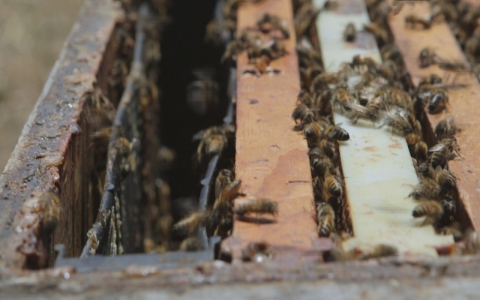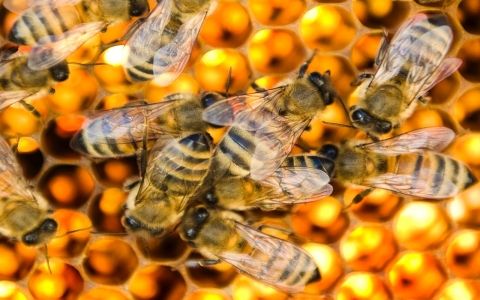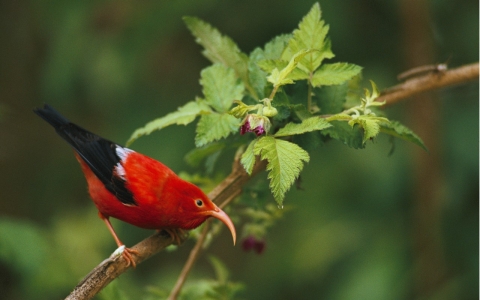The White House on Tuesday issued a report on America’s declining honeybee and monarch butterfly populations, and proposed steps the federal government should take to reverse the trend — including the use of fewer pesticides.
Scientists say bees — crucial to the pollination of national crops — have been hurt by a combination of mites, disease, pesticides and declining nutrition. The federal report calls on everyone from bureaucrats to citizens to do what they can to save bees, which provide more than $15 billion in value to the U.S. economy, according to White House science adviser John Holdren.
"Pollinators are struggling," Holdren said in a blog post Tuesday on the White House web site, citing a new federal survey that found beekeepers lost more than 40 percent of their colonies last year, although they later recovered by dividing surviving hives.
He also said the number of monarch butterflies that spend winters in Mexico is down by almost 90 percent over the past two decades. The U.S. government is working with Mexico to expand monarch habitat there. Like bees, monarch butterflies carry pollen between flowers, a process crucial for plant reproduction.
The White House report proposes spending $82.5 million on honeybee research in the upcoming budget year, up $34 million from the previous year.
The report also calls on the Department of Interior, which controls vast territory, to make lands more bee friendly. Other agencies that wouldn’t normally be considered stakeholders in the matter — such as the Department of Transportation — are encouraged to do the same.
"This I think is something to get excited and hopeful about,” said Dennis vanEnglesdorp, a University of Maryland professor who has led federal studies into the country’s declining bee population. “There is really only one hope for bees and it's to make sure they spend a good part of the year in safe healthy environments.”
The White House’s report also calls for the Environmental Protection Agency to step up studies into the safety of widely used neonicotinoid pesticides, which have been temporarily banned in Europe.
Altogether, the White House aims to restore 7 million acres of bee habitat in the next five years. For monarch butterflies, the White House seeks to collaborate with the Mexican government to raise the insect’s winter population to 225 million in a 15-acre area there. The butterflies migrate each year from Mexico to the eastern United States, after spending the winter south of the border.
University of Montana bee expert Jerry Bromenshenk said the effort shows the federal government finally recognizes that land use is key when dealing with bees.
"From my perspective, it's a wake-up call," Bromenshenk said. "Pollinators need safe havens, with adequate quantities of high-quality resources for food and habitat, relatively free from toxic chemicals, and that includes pollutants as well as pesticides and other agricultural chemicals."
Al Jazeera and The Associated Press

Without bees, there is no hope of growing many of the fruits and nuts the world is used to putting on its table

Plan aims to aid farmers who depend on pollination, as bee numbers plummet due to pesticides and habitat loss

Protected areas in Northwest and Hawaii will phase out use of neonicotinoids





Error
Sorry, your comment was not saved due to a technical problem. Please try again later or using a different browser.